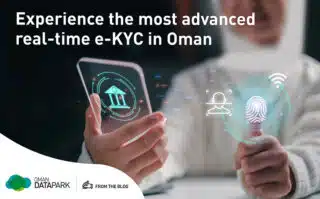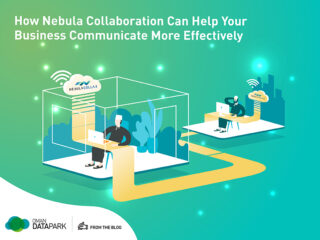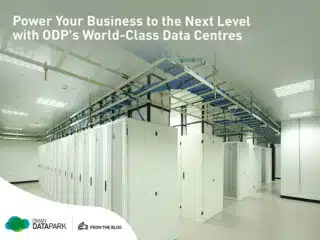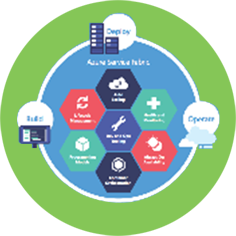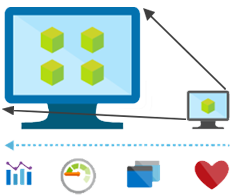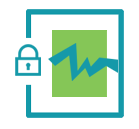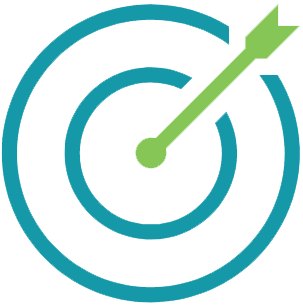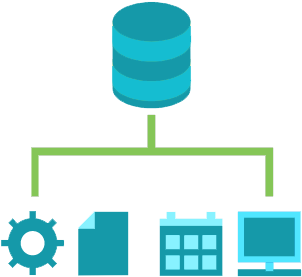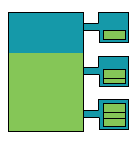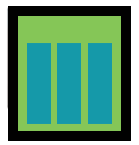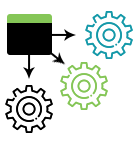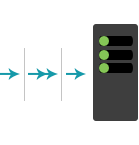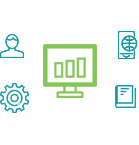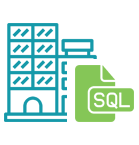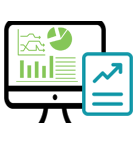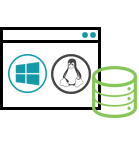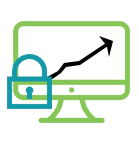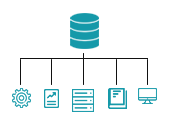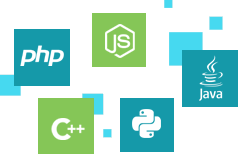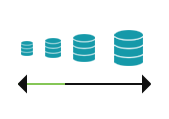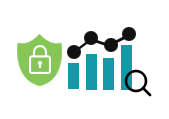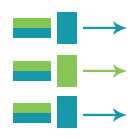October 15, 2020
The current global situation has seen a drastic shift in the purchasing habits of people the world over towards e-commerce, the Sultanate included. This has forced an increasing number of formerly brick and mortar stores to look towards expanding their reach towards the online world. This is a big step to take and if not handled correctly can cause significant problems for your brand in the long run, including missed opportunities and lost business. In order to help on the way, we have drafted out a detailed guide covering every important stem you would need to get your online business up and running in the fastest possible time, while at the same time maximising your chances for success.

BUY YOUR DOMAIN
The very first thing you need to do when taking your business online is securing your domain. While it may not initially seem as important, this is by far one of the most critical components of the process. As a result, you might want to take your time with it. Ideally you would want to get a domain that is identical to your business name. But this may not always be possible. Either way, here are some guidelines on how you can go about selecting and reserving the perfect name for your business.

Picking a Domain Name
- The Extension: One of the first things you need to do is pick a domain name. The most common of these is of course, ‘.com’. It’s the general go to domain for most international businesses. However, local or regional businesses, such as local SMEs here in Oman, may be better served to go with a ‘.om’ domain extension. Doing so does two things – it makes that local connection clear, and adds some credibility to your organisation within the local community. Outside of these two-domain extensions, there are plenty of others also available today, from more common ones such as ‘.net’ and ‘.org’ to niche extensions like ‘.pizza’, ‘.photography’, ‘.ninja’, and even ‘.blog’. Do keep in mind that some of these niche extensions can be untrustworthy.
- Use Keywords: Keywords play an important role in a domain – they tell the search engines what your website is about or the field your business is focused on. Together with your website content, keywords in your domain can help your SEO results (more on this later), helping you rank higher in Google. While it’s not always possible to find a good domain with your target keywords, being creative and combining keywords can make your website stand out.
- Keep it Short and Simple: While keywords are important, do keep the length in check. Short and memorable domains are always preferred. You should always go for one that is easy to share, both when speaking and writing; especially if you plan on using it to create a professional business address. The added benefit of having a short and simple domain is that they are easier to remember and less prone to typos, which in turn means less lost traffic.
- Keep it Unique and Brandable: Your domain name must be unique, catchy, and memorable, so you can stand out in your customers’ minds. It’s smart to research competitors in your field to find out what domain names they’re using; not to copy them but to ensure your name stands out. You should also try and pick a name that’s brand able. Do be careful of accidently using trademarks though, as this could cause people to accuse you of copying.
- Keep it Flexible: Try and pick a name that is flexible. What we mean by this is, try to avoid that trap of picking a name that is completely tied to one particular field. This can limit your long-term option and can lead to lost search rankings if you decide to move your site to a new domain later. Picking a flexible name from the start can just allow you to add on to your primary domain later, without having to shift completely.
- The Big DO NOTS of Domain Names: There are three core rules to follow here – do not use hyphens, avoid using doubled letters, and avoid numbers. Each of these are prone to typos and can lead to lost traffic.
- Act Fast: If you have found a domain name that you like, then don’t wait too long to register it. Domain names are relatively cheap and thousands of new domain names are registered each day around the world. If you don’t act fast, there is a good chance you can lose out on that perfect name you got for your business.
Registering Your Domain
Registering a Domain works in the same way as leasing does. You get in touch with a service provider, such as ODP, that offers domain registrations and pay them to register a domain of your choice for a specific amount of time. So long the domain is registered to you, no one else can claim it.
Most people register their domain names for a period of three to five years. Many also register more than one domain name to represent their business online. Doing so can be extremely useful, depending on your business. If you are looking to expand the scope of your business in the future for instance, you can go ahead and register additional domains that represent specific products or services you wish to offer, or markets you serve as you expand and grow. You can then point any such secondary domains to your primary address. You can also forward domains to sites like your Facebook business page. Alternatively, this could also be done to better identify with a specific industry and stand out in search results, or to protect your brand so that competitors cannot get a hold of those domains.
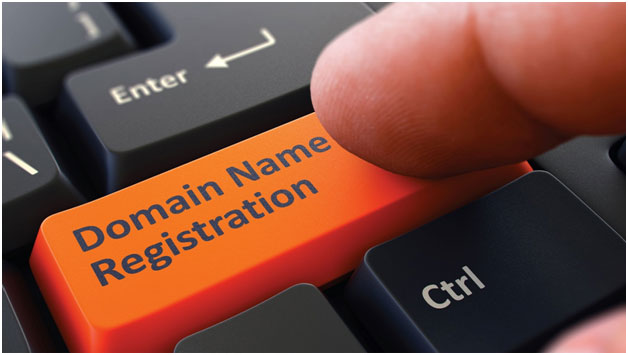
At ODP, as part of our SME bundles, we offer customers the opportunity to register a ‘.om’ domain for just OMR 30 (OMR 18 for Riyada/OTF customers) and renewals for just OMR 18 (OMR 16.250 for Riyada/OTF customers). In addition, ODP also offers customers, for a minimal fee, the option for having an email to match their domain right from the get-go using Office 365 Exchange Online. This includes a 50 GB mailbox and, if you wish, an MS Business Essentials package. The latter provides you with the ability to work as a team with your office colleagues and employees, collaborating with them in real time with a professional email, persistent chat, online storage, and video conferencing tools that are always up-to-date and secure.
CREATE YOUR WEBSITE
With your domain now registered, it’s time to work on your website. To do this you first need to decide on the type of website that would best suit your business. Would you like it to only showcase your products and services, and generate sales leads? Or would you like visitors to be able to purchase them directly from the site?

If you prefer the latter, what you will need is an ecommerce website. Online stores like these are quite a bit more specialised than a standard website and, as a result, will require three key components in addition to whatever a regular website requires. These include:
- Payment processing tool to handle transactions. While a third-party service like PayPal can work, we also advise creating your own merchant account. Doing so will give you the ability to accept payments from major credit and debit cards. It will also lend more credibility to your business.
- A shopping cart tool that will display product images and descriptions, present shipping options, track inventory and more.
- An SSL Certificate (Secure Sockets Layer certificate) is vital for any website that wishes to carry out online transactions. These are digital certificates that encrypt the information your customers send when they purchase products or complete forms on your website and is the first thing most tech savvy customers look for when they make an online purchase.
 Once you have decided on the type of website you want, you will need to decide on where it will be hosted and how you are going to go about getting it designed.
Once you have decided on the type of website you want, you will need to decide on where it will be hosted and how you are going to go about getting it designed.
Webhosting
An essential step in setting up a website is choosing a platform where you will be hosting its content. This can be done by either setting up your very own server, which for most companies isn’t cost effective, or via a web hosting service. The latter provides individuals and organizations with leasable server space, together with the required internet connectivity, to make their website accessible via the World Wide Web. It’s worth noting that a vast majority of domain registration companies also offer web hosting as a service. Just keep in mind that, should you prefer to go with this option and you are planning on setting up an online store, you’ll need to sign up for one that offers the option to setup an ecommerce platform.
ODP is one such company. We offer customers the option of hosting their websites right here in Oman at our TIA 942 Rating 3 certified data centers. We offer both Windows and Linux support as well as readymade Packages with an option to upgrade or downgrade according to your need. We also offer 24×7 local support when required.

Designing your Website
When it comes to designing your website, if you aren’t already an accomplished web designer, you only really have one of two options:
- DIY website buildersIf you prefer building and running your own website but aren’t well versed in in HTML coding, fret not. There are several easy DIY site builders and content management systems available that makes setting up your website relatively easy. In fact, with a little skill and some time, you could quite easily set up a very professional looking website. WordPress is a particularly good example of just such a system. You can even choose from myriad free or paid WordPress themes and plugins to really take your website to the next level.
- Professional website designerIf you prefer not doing the website yourself and are willing to shell out the necessary costs, hiring a professional designer or website design service is a great option.
Add Content
Regardless of your website design, its visuals will only take you so far. It is vital to have quality content to hand-in-hand with the design to truly make an impression. Good, professionally written content is crucial to growing your online business. The key to success in this area is to add just the right amount on quality content on key pages of your website so that people can easily access all information they require, be it about your company or your products and services. While your options in terms of pages is practically limitless, there are a few that you definitely need to focus on:
- Home page: Your homepage is almost always the first page your visitors see. As with pretty much any type of business, first impressions are critical towards ensuring success. As such, extra care should be taken with both the design and content on your home page. Feature a quick blurb of what your business does, some easily accessible quick links, high-quality visuals showcasing your products or service, and perhaps a few testimonials from your existing customers if possible.
- About Us page: Use this page to share your story, speaking of your humble beginning and try using some images of the people behind the scenes to add a human element to the company.
- Product page/s: Use this page to list the details of your products or services. Make sure the content is placed in easily digestible chunks with high quality visuals. If you are running an e-commerce website, this may also be a great place to link a purchase now button, or a direct link to the store. Make sure to also have an easily accessible link to your returns and refunds page with complete details on how this can be done. This, while seeming minor, shows how much you care for your customers and can be vital.
- Contact Us page: Place all company’s email address, phone number, physical address, business hours, contact form, social media handles, and if possible, a live chat feature on this page.
Understanding SEO
All the effort you placed in your website won’t be of much use if you can’t be found easily on most common search engines. This is where search engine optimisation comes in. Fondly known as SEO, this is the process of refining the content on your website in such a way as to achieve higher search engine rankings. The best part of good SEO is that you get higher placements on search engines such as google for free, without having to pay for sponsored listings. This also ensures organic visitors to your site are more common.

In order to achieve this, you will need to attract the attention of the search engine bots, who will then analyse and index the information on your website to determine where it will be placed on the Search Engine Results Pages (SERPs). To ensure proper SEO its best to hire an expert in the field. However, if you wish to do it yourself, here are some basic measures you can take to ensure better results:
- Make sure all content on the page is relevant to the needs of your target customer.
- It’s worth taking the time to do some research into keywords and phrases that are common to your area of business and ensure they are sprinkled throughout your website.
- Take some time to carefully plan out the navigation throughout your website. Proper links and easier navigation to your most prominent pages yield better SEO results. Also, ensure there are no broken links anywhere on the site. A well-planned sitemap will greatly help you in achieving this.
- Wherever possible, try to link keyword on one page of your website to relevant pages elsewhere on the site. Even more vital are back links – links from other websites that point to your site. Try and work towards getting as many of these as you can.
- Search engines love images. It is therefore well worth the time and effort to ensure a generous spread of high-quality images throughout your website. It is also vital to properly name and tag images to ensure increased referral traffic from Image Searches.
- If you are a bit more tech savvy, it may be worth looking into meta tags – HTML tags that contain info on your website that help search engines identify what the site is all about and how to describe it when it is being listed.
SECURING YOUR WEBSITE
On the World Wide Web every website is a target. Having a secure website is extremely important, be it an e-commerce or regular website. Not only does it ensure the safety of your website visitors and customers, but it also ensures your brand’s reputation is never tarnished. Taking a few precautionary steps can go a long way in ensuring you aren’t affected by the myriad of malicious users or programs that can be found online.

- First and foremost, you need to choose a secure web host and platform that offer complete protection from the most common threats, such as malware and SQL injections.
- As mentioned earlier, obtaining an SSL certificate is of the utmost importance, especially if you are running an e-commerce business. This is because an SSL certification is mandatory for all e-commerce websites under the Payment Card Industry (PCI) Data Security Standard. It helps to find a provider that has built-in security protocols and benefits you need to get an SSL certificate.
- SQL injections are a web security vulnerability that allows an attacker to interfere with queries an application makes to its database, allowing them to view data that should not normally be able to. This can be made in any user input form on your website. Checking them regularly for such vulnerabilities is vital.
- Hackers find vulnerabilities on almost a daily basis and as these are detected, new updates are released. Pay close attention to these updates and always keep your website patched.
- Keep a watchful eye on whatever add-ons you download and integrate into your website. While these plugins, tools, and apps can offer great value and convenience to your website, they can also be used to implant malicious protocols on your website; especially if these add-ons are not optimised.
- This goes without saying but make sure your make regular backups of your website data. While this may not completely keep you safe, it can drastically reduce the damage done if things go south. It’s a good business practice to back-up your website as often as possible.
- Make use of a website application firewall or use a provider that offers such a service. A Website Application Firewall, or WAF, will help protect your website from XSS, SQL injections, and forgery requests. It can also help protect your website from hacking attempts or DDoS attacks.
- For any e-commerce business – leave payment and data processing to the experts. DO NOT collect or keep any of your customers’ private data on your website unless absolutely necessary. Use third-party, encrypted checkout tunnels to process payments – this is a standard procedure for most trustworthy e-commerce sites.
At ODP, we offer all of the above, making it amongst the most secure web hosting companies in the country. In fact, we offer a fully customisable suite of cyber security services to suit your specific security requirements. These include Internal VA, External VA, App Scans, Standard SSL, Anti-Virus, and WAF. In addition, our customer websites are hosted on our very own TIA 942 Rating 3 certified certified Data Centres right here in Oman, ensuring optimal data security at all times.
ERP AND ECOMMERCE
If e-commerce is the primary objective of your website, there is a lot of backend preparation that needs to go into it before you can take your website live. Chief amongst this is deciding on what you can sell online from your current offerings. While service-based firms need not worry about this as much, more common brick and mortars stores may have to worry about storage and shipping. As a result, they may have to trim down their inventories in order to keep costs low. A decent alternative to doing this yourself would be to make use of drop shipping – a common practice that sees the retailer transfers its customer’s orders and shipment details to either the manufacturer or wholesaler, who then ships the goods directly to the customer. Regardless of which option you choose, it may be well worth your while to look into adopting ERP into your business.
So, What Exactly is ERP?
Enterprise Resource Planning is a software that brings together all facets of your operation – be it marketing, HR, logistics, or customer service, and integrates it all into one singular piece of software in order to make it far more efficient.
For any e-commerce business to operate efficiently, it is reliant on the rapid transfer of key information such as sales order detail, customer profiles, stock availability, pricing, and other financial analysis.
This is basically what ERP does. It automates all core processes by collecting orders, delivering reports on these orders, and gathering and storing information to allow each of the relevant departments to act on the information effectively and in the most efficient manner possible. It also ensures that all this information is both instantaneous and bi-directional. In doing so, the system cuts out all unnecessary, tasks and jobs, saving both time and money in the long run. It also ensures errors are minimised and your delivery performance is always optimised, ensuring a great customer experience.
And the best part? The scalability and flexibility of the system offers your business near unlimited scope for growth.
At ODP, we offer our customers the complete suite of Odoo ERPsolutions, ensuring you an app for practically every possible business requirement you may have. Chief amongst these are our Sales, Purchasing, Inventory, Accounting, and POS modules for our e-commerce-focused customers. We offer these set of modules at a price of just OMR 18 per month (OMR 6 for Riyada/OTF customers).
JUMPING ONBOARD THE IAAS TRAIN
For most SMEs and even some larger businesses, owning and maintaining your own IT infrastructure can tie up a significant number of resources, time, and staff. It is for this reason alone that supporting their own in-house data center is therefore increasingly unattractive. However, this is compounded when these businesses try to keep pace with rapid developments in information technology. The rising costs of keeping their own data center and internal IT up to date can be prohibitively expensive.

But it is this same advancement in technology that has enabled more and more SMEs to recognise the benefits of working with cloud-based solutions such as IaaS (Infrastructure as a Service). While the name sounds complicated, the concept itself is relatively simple – to provide a client with an external cloud-based IT infrastructure or the basis for all services in an external data center. This includes everything from hosting and storage space, to computing power and a secure network.
In doing so, not only does the service provide help businesses save on cost but it also helps provide a stable IT infrastructure that is in compliance with all security standards and levels, be it in relation to antivirus, backup and update management, or security monitoring. Furthermore, the systems are always kept up to date with the latest IT advancements and their customisable nature allows businesses to save even more on cost by only paying for the software, services, and resources they actually need.
So, if you are planning on taking your business online, why not go all the way? At ODP we offer a flexible and affordable IaaS service that includes two Windows-powered Virtual Machines, 6 Mbps Connectivity, Shared Network and Firewall Services, and one Public IP. These packages can also be further customised to match your requirements if needed.

 Once you have decided on the type of website you want, you will need to decide on where it will be hosted and how you are going to go about getting it designed.
Once you have decided on the type of website you want, you will need to decide on where it will be hosted and how you are going to go about getting it designed.